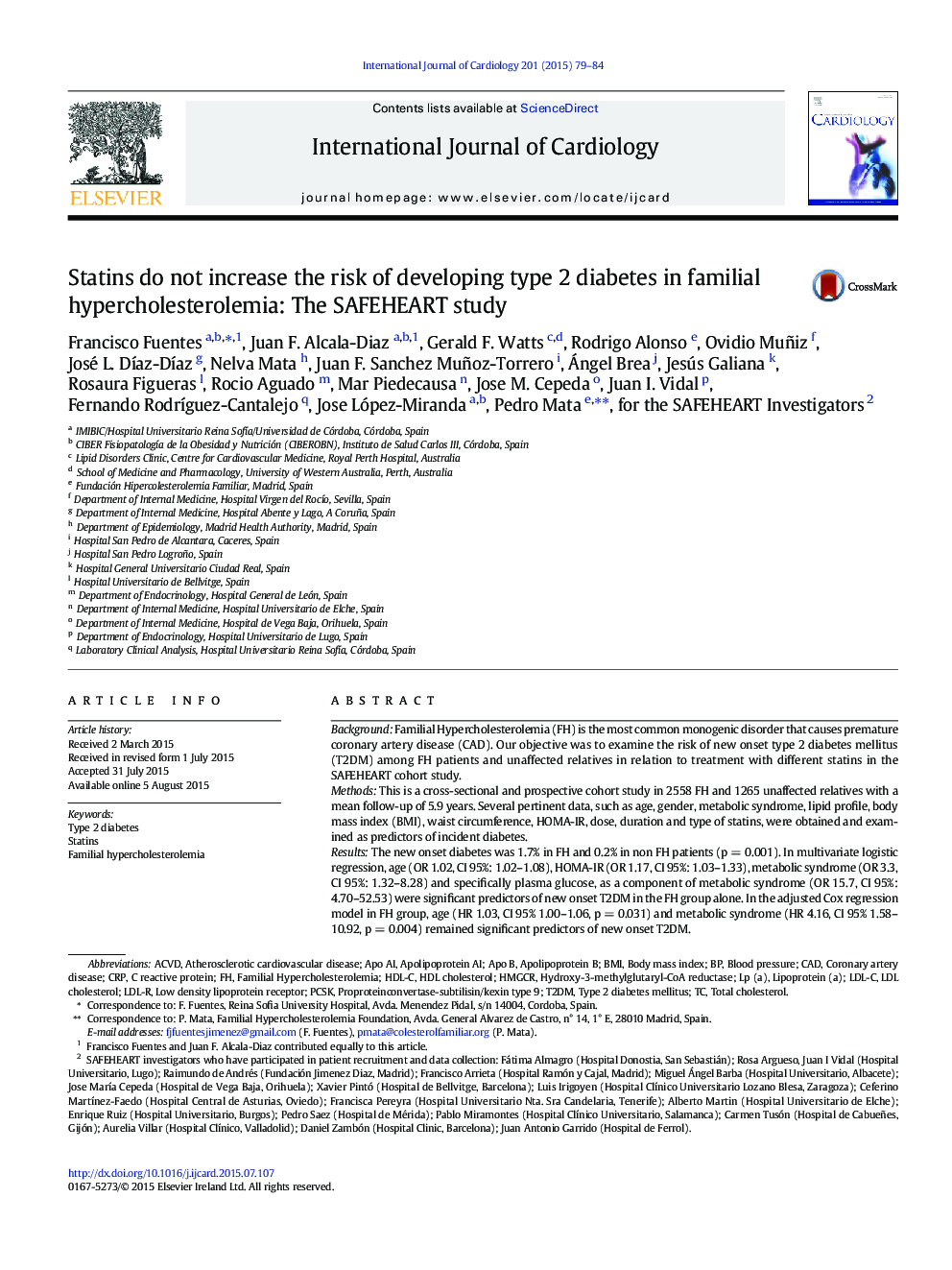| Article ID | Journal | Published Year | Pages | File Type |
|---|---|---|---|---|
| 5966316 | International Journal of Cardiology | 2015 | 6 Pages |
BackgroundFamilial Hypercholesterolemia (FH) is the most common monogenic disorder that causes premature coronary artery disease (CAD). Our objective was to examine the risk of new onset type 2 diabetes mellitus (T2DM) among FH patients and unaffected relatives in relation to treatment with different statins in the SAFEHEART cohort study.MethodsThis is a cross-sectional and prospective cohort study in 2558 FH and 1265 unaffected relatives with a mean follow-up of 5.9 years. Several pertinent data, such as age, gender, metabolic syndrome, lipid profile, body mass index (BMI), waist circumference, HOMA-IR, dose, duration and type of statins, were obtained and examined as predictors of incident diabetes.ResultsThe new onset diabetes was 1.7% in FH and 0.2% in non FH patients (p = 0.001). In multivariate logistic regression, age (OR 1.02, CI 95%: 1.02-1.08), HOMA-IR (OR 1.17, CI 95%: 1.03-1.33), metabolic syndrome (OR 3.3, CI 95%: 1.32-8.28) and specifically plasma glucose, as a component of metabolic syndrome (OR 15.7, CI 95%: 4.70-52.53) were significant predictors of new onset T2DM in the FH group alone. In the adjusted Cox regression model in FH group, age (HR 1.03, CI 95% 1.00-1.06, p = 0.031) and metabolic syndrome (HR 4.16, CI 95% 1.58-10.92, p = 0.004) remained significant predictors of new onset T2DM.ConclusionsOur data do not support the postulated diabetogenic effect associated with high-dose statins use in our cohort of FH patients.
